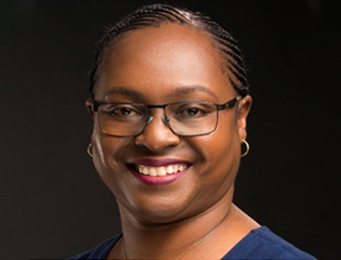| |
|
|

Interviews ::
 |
Amy Wu, an award-winning writer for the women’s Ag and Agtech movement |
 |
Ms. Irene Karani, Children’s Investment Fund Foundations’ Africa Climate Director |
 |
Natalia Schäfer (Schaefer), Leading and Globally Renowned Artist |
|
Read All Interviews |
News / Updates/ Analysis ::
COP 27- some hopes midst of chaos
Climate Change is Happening Now- Time to Take Action!
|


|
|
|

|
Lalitha Muthusamy is a co-founder of The Malaysian Youth Climate Justice Network (MYCJN). She has been involved in activism for the past 4 years with several organizations, both at local and international levels, specifically in youth development/leadership and environmental initiatives. Currently she plays an advisory role to MYCJN and the steering committee.
|
- Tell us about your network and its areas of work, membership etc.?
The Malaysian Youth Climate Justice Network was founded with the intention to provide a platform for Malaysian youth to become actively involved in issues relating to climate justice. We operate with the belief that every young person is capable of leadership and effective action regardless of experience; we aim to provide enthusiastic, inspired youth with the tools they need to see their ideas translate into reality. Thus far, members of MYCJN have organized a sustainability leadership symposium as well as several projects for 350 to raise awareness on climate issues. As a network, one of our primary responsibilities is to connect individuals and organizations including the government and other non-governmental bodies as we recognize the importance of a collective synergy in order to achieve more sustainable systems of operation. Our membership mainly consists of volunteers and we strive to make organizational processes as lateral as possible to maximize the involvement of the highly capable young people we work with.
- What is the level of participation and leadership of girls in your initiatives?
We have never intentionally sought out the added involvement of one gender or the other, but overall the number of young men and women involved is approximately equal.
- Why and how do you think that youths can play important role in climate change issues?
Since MYCJN takes the viewpoint of intergenerational justice, we find ourselves and other young people accountable to speak up and take action in whatever capacity they can to ensure the sustainability of their own futures.
- From your view point what are the major climate change concerns in Malaysia?
One of the issues we continue to address is the expansion of palm oil plantations in Borneo. Some concerns related to this are the deforestation of forests and peat swamps that serve as major carbon sinks. In addition to that much of this deforestation encroaches on the rights of the aboriginal people who live on those lands. Recently there has also been an emergence of parties that have redefined “forests” by advocating palm oil plantations as forests that absorb more carbon than natural or primary forests. This unsustainable use of land will render the areas covered by palm oil plantations unusable in 30 years.
- How do you connect the issues of climate change and justice?
MYCJN’s stand on climate justice is one of intergenerational justice, which is the belief that the young people today have the right to a safe climate in the present and in the future. Climate change has brought upon us the dilemma of energy, water and food security in addition to the depletion of other non-renewable resources that society wholly relies upon. The question we continue to pose to our leaders and the community at large is “Why must we suffer the consequences of your decisions?” Much of our work is focused on making young people aware of their rights to a safe and sustainable future as much as it is about catalysing reform.
- It is most likely that there will be a huge amount of fund flow around the issues of climate change in the coming years; whether you have developed any mechanism of watch dog (to monitor)?
We have not attempted such a thing and do not plan to in the near future. This is consistent with our function as a network that is meant to primarily serve as a means of connecting the relevant people versus taking on the mammoth task of establishing ourselves as some kind of premier authority on the ways and means of combating climate change. Also, mechanisms are generally ad hoc and agreeably unsustainable.
- What is the level of mass awareness regarding the issues of climate change and adaptation in Malaysia?
The term “climate change” has been overused and extensively exploited so much so that it has lost it’s meaning in reflecting the gravity of the issue itself. This is currently fueled by the major green washing advertising campaigns by large corporations trying to push their products and services on the more progressive aspects of the Malaysian demographic. However, the level of understanding of the concepts of sustainability, adaptation, and climate justice remains shallow with the exception of a handful of the population. Much of the younger generation remains apathetic and ignorant.
On the bright side, as a result of our work and further exposure thanks to resources like the internet, more independent thinking youth are stepping out and voicing their concerns in louder and more creative ways than ever. And undeniably, this number is growing.
- What were your major demands during the COP meeting at Copenhagen, as a youth network?
MYCJN does not represent the views of all Malaysian youth. Rather, we provide a platform for youth to voice their concerns themselves. Therefore it is impossible for me to specifically speak on behalf of the entire network, but I would really like to see Malaysia follow in Indonesia’s footsteps Indonesia just became the first developing nation to set voluntary targets) and commit to voluntary targets as well.
For your feedback: secretariat@earthconcernasia.com
Note: Opinions expressed in interview sections and individual write ups are of interviewee/ authors; earth concern facilitates to bring ideas and perspectives.
|
|

